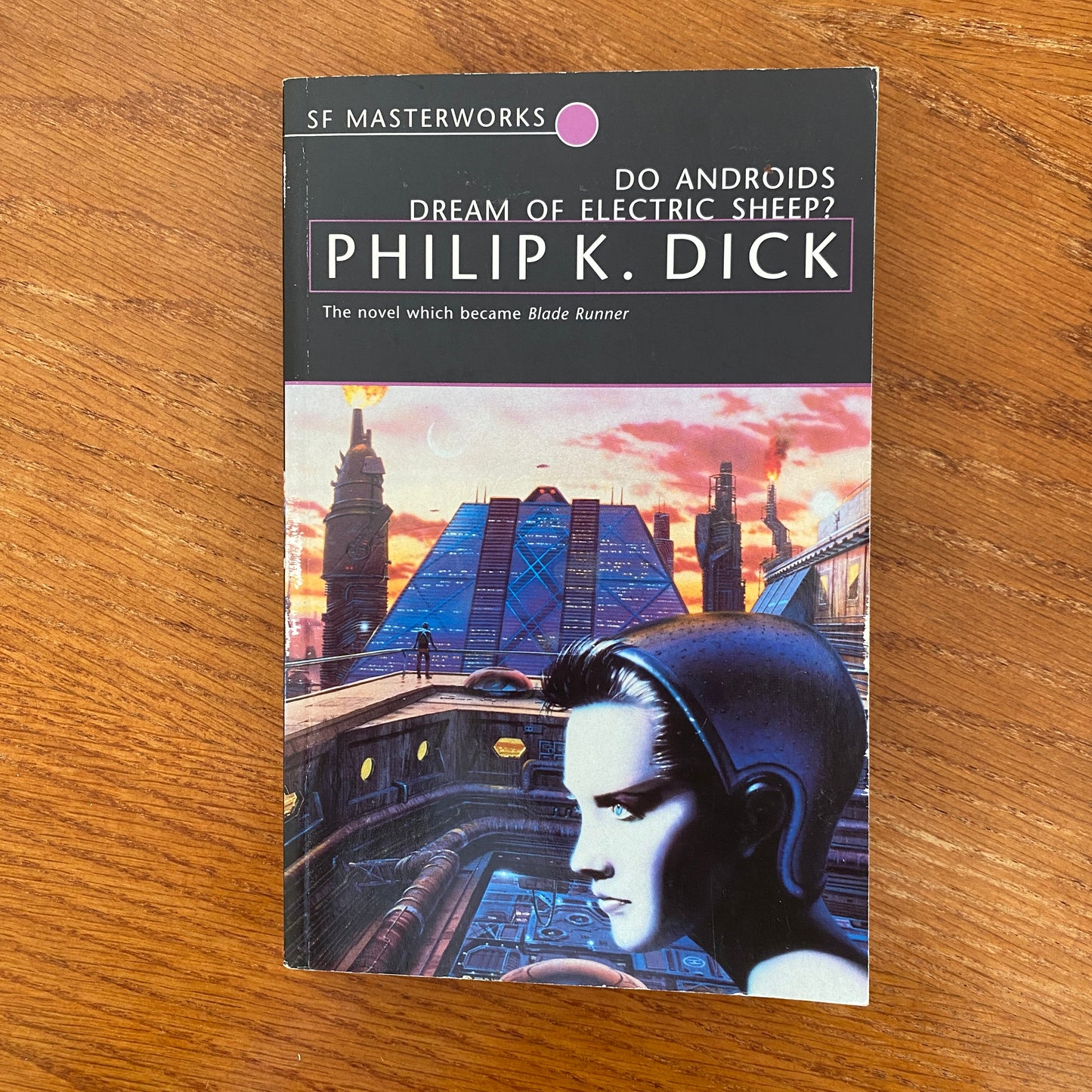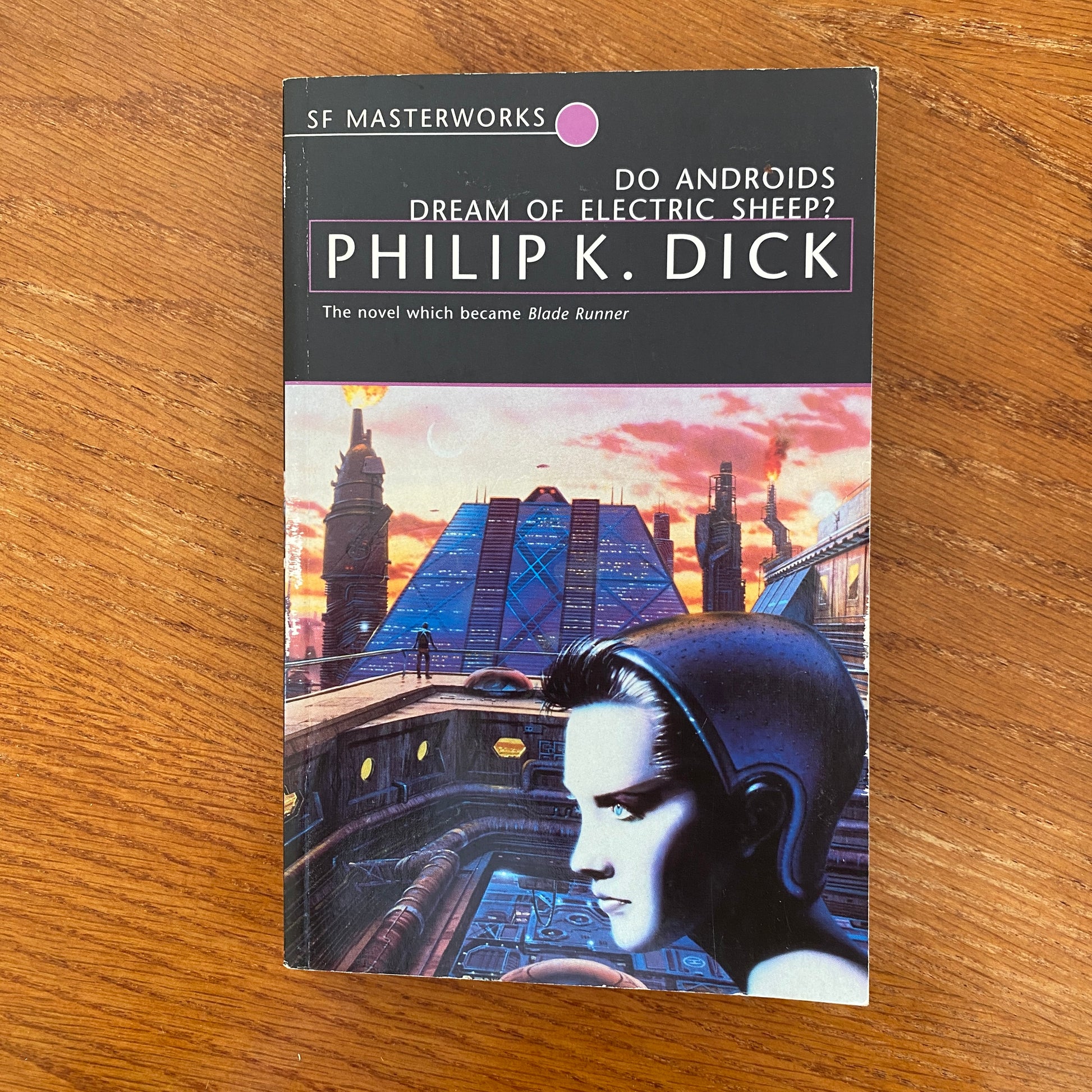1
/
of
4
Rumorbooks
Philip K. Dick - Do Androids Dream Of Electric Sheep?
Philip K. Dick - Do Androids Dream Of Electric Sheep?
Regular price
$18.00 AUD
Regular price
Sale price
$18.00 AUD
Shipping calculated at checkout.
Quantity
Couldn't load pickup availability
Philip K. Dick's "Do Androids Dream of Electric Sheep?" is a seminal science fiction novel published in 1968. The story is set in a post-apocalyptic future Earth, where most of humanity has emigrated to off-world colonies, leaving behind a desolate and ecologically damaged planet.
The novel follows the life of Rick Deckard, a bounty hunter tasked with "retiring" (destroying) rogue androids that have illegally escaped to Earth. These androids are virtually indistinguishable from humans, making Deckard's job morally and emotionally complex.
At the heart of the novel lies an exploration of what it means to be human. In this bleak future, humans who can afford it own androids as companions, reflecting the deep loneliness and emptiness that pervades society. The "empathy test," a central element of the story, is used to measure an individual's emotional capacity and connection to others, highlighting the importance of empathy in a world where humanity is in decline.
The book raises profound questions about the nature of consciousness, empathy, and the moral implications of creating artificial beings. It also delves into the idea of a post-religious society, where individuals seek meaning and connection in different ways, including through a shared obsession with keeping and caring for animals.
The title itself, "Do Androids Dream of Electric Sheep?" invites readers to ponder the inner lives of artificial beings and whether they, too, possess dreams, desires, and emotions. This thematic exploration served as the basis for the iconic film adaptation, "Blade Runner," directed by Ridley Scott.
Philip K. Dick's narrative style, marked by psychological depth and a sense of existential questioning, is evident throughout the novel. He challenges readers to confront the complexities of identity, morality, and the boundaries between humans and machines.
In summary, "Do Androids Dream of Electric Sheep?" is a thought-provoking and influential work of science fiction that continues to resonate with readers. It offers a deep exploration of the human condition, the nature of consciousness, and the ethical dilemmas posed by advanced technology. It remains a classic of the genre and a testament to Dick's ability to engage readers with complex philosophical and existential themes.
The novel follows the life of Rick Deckard, a bounty hunter tasked with "retiring" (destroying) rogue androids that have illegally escaped to Earth. These androids are virtually indistinguishable from humans, making Deckard's job morally and emotionally complex.
At the heart of the novel lies an exploration of what it means to be human. In this bleak future, humans who can afford it own androids as companions, reflecting the deep loneliness and emptiness that pervades society. The "empathy test," a central element of the story, is used to measure an individual's emotional capacity and connection to others, highlighting the importance of empathy in a world where humanity is in decline.
The book raises profound questions about the nature of consciousness, empathy, and the moral implications of creating artificial beings. It also delves into the idea of a post-religious society, where individuals seek meaning and connection in different ways, including through a shared obsession with keeping and caring for animals.
The title itself, "Do Androids Dream of Electric Sheep?" invites readers to ponder the inner lives of artificial beings and whether they, too, possess dreams, desires, and emotions. This thematic exploration served as the basis for the iconic film adaptation, "Blade Runner," directed by Ridley Scott.
Philip K. Dick's narrative style, marked by psychological depth and a sense of existential questioning, is evident throughout the novel. He challenges readers to confront the complexities of identity, morality, and the boundaries between humans and machines.
In summary, "Do Androids Dream of Electric Sheep?" is a thought-provoking and influential work of science fiction that continues to resonate with readers. It offers a deep exploration of the human condition, the nature of consciousness, and the ethical dilemmas posed by advanced technology. It remains a classic of the genre and a testament to Dick's ability to engage readers with complex philosophical and existential themes.
Share








